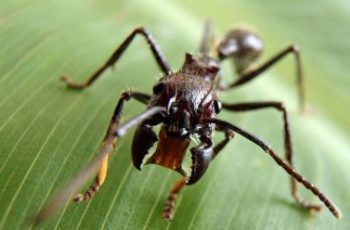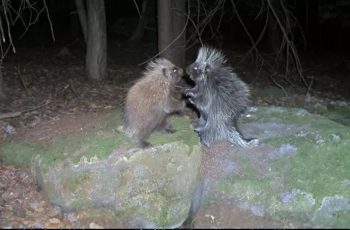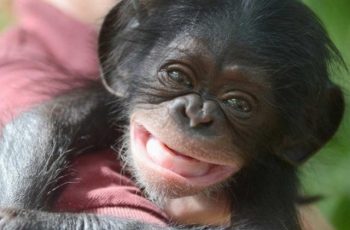Akita
Japan’s national dog is high up on the list of no-nos when it comes to homeowner insurance. They’re known as being extremely dominant, and used to hunt a range of animals throughout history — even bears. Akitas are fiercely loyal, but need to be secured at all times and trained, with regular training incorporated to avoid accidents.
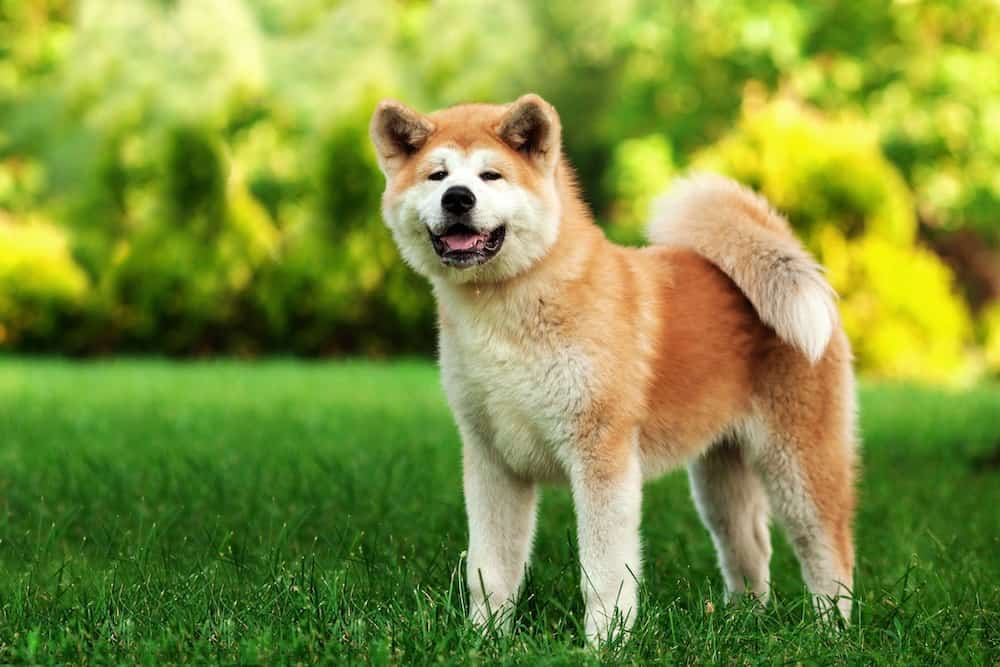
Mastiff
Although they’re mostly gentle giants, your everyday English mastiff can weight up to 230 pounds, meaning that if you lose control over it, it can easily overpower you. When these big canines aren’t a huge risk with other dogs, their large size alone makes them hard to control if something does happen.
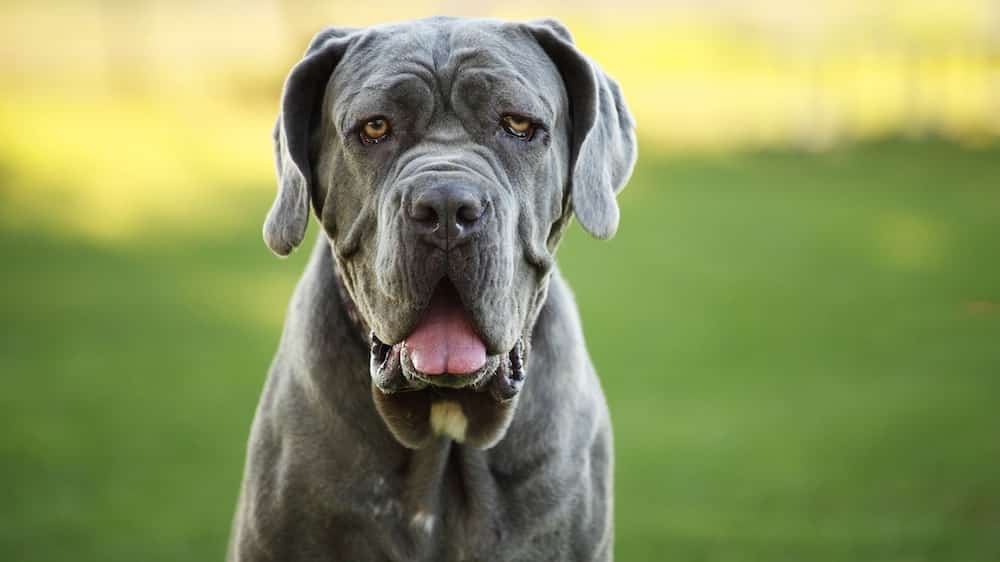
Chow Chow
These guys might look like fluffy stuffed animals, but they’ve been known to accidentally hurt kids, and require owners with a sense of power, which can be hard for young children to convey. They can also get very attached to their parents and protective over their family, causing danger to strangers who approach.
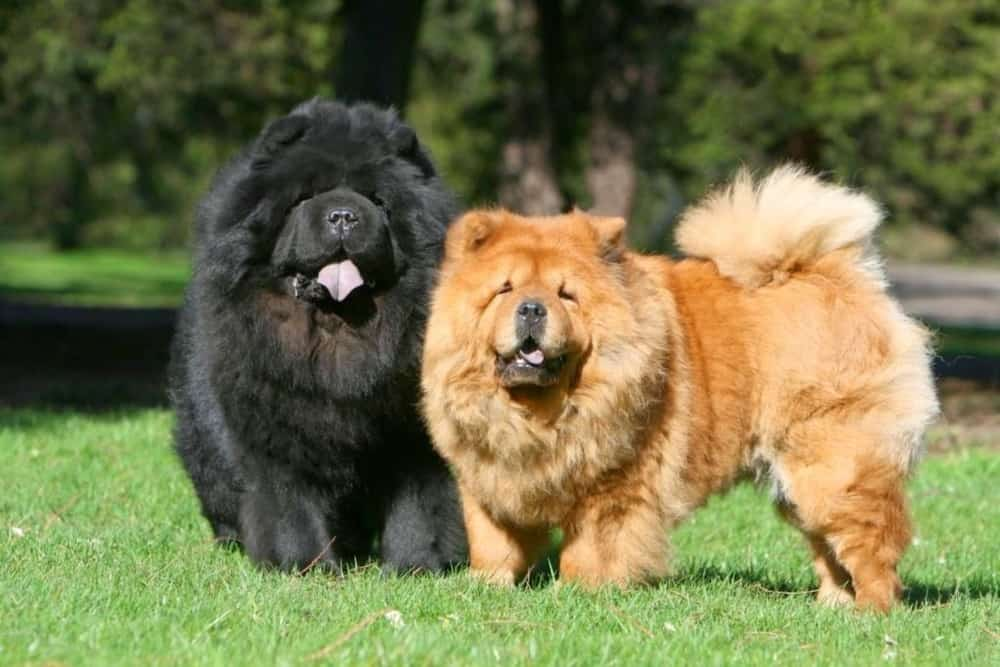
American Pit Bull Terrier
Although Pit Bulls are commonly misunderstood, it’s usually due to the owner. When handled correctly, pitties are perfectly calm and well-behaved. But if a Pit Bull is left untrained and is improperly trained, it can pose a threat that’s often uncontrollable, especially due to the breed’s natural strength.
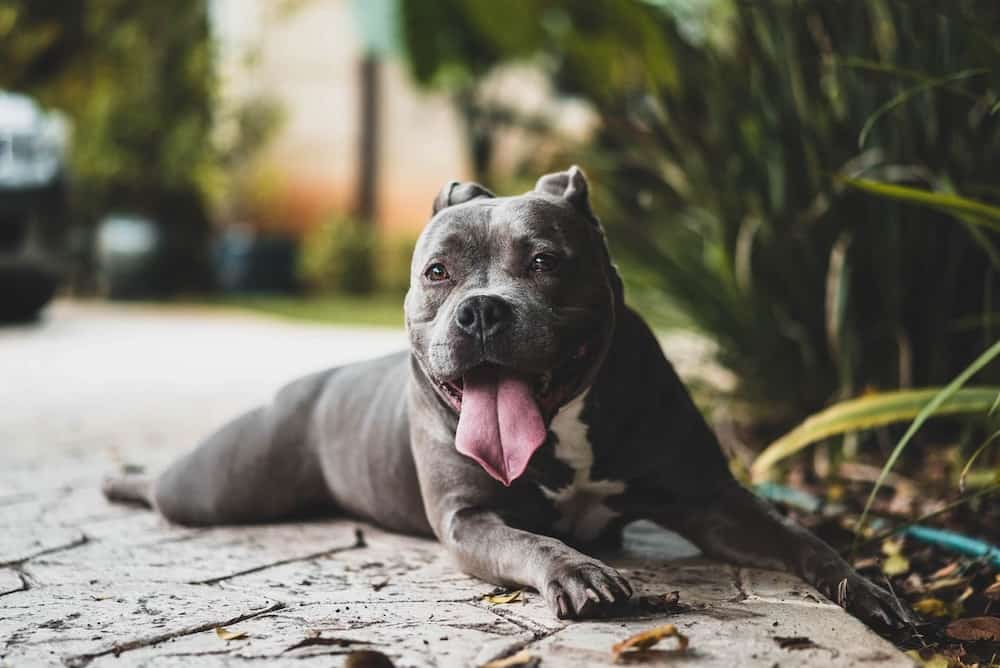
Bullmastiff
These dogs are big, but think they’re a small terrier, which can lead to some potential issues such as knocking own kids or being aggressive towards other dogs. If they are rescued or adopted as adult dogs, training is very difficult — the earlier, the better.

Presa Canario
These beautiful pups need to be socialized and made obedient early on, especially given that the Presa Canario was first developed to protect livestock by attacking wild dogs that endangered their herd. When it’s not given the exercise it needs, fatal consequences can happen.
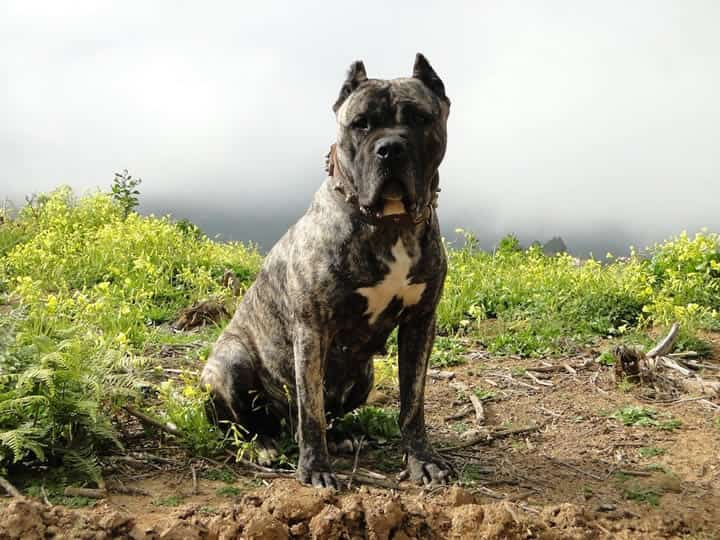
Cane Corso
The Cane Corso, aka the Italian Mastiff, needs tons of socialization and extensive training. Not just to avoid aggressive behavior, but to avoid skittishness. These dogs, as intimidating as they look, can be quite nervous, and if they get caught off guard, they’ll easily drag you away with them — and whatever’s in their way!
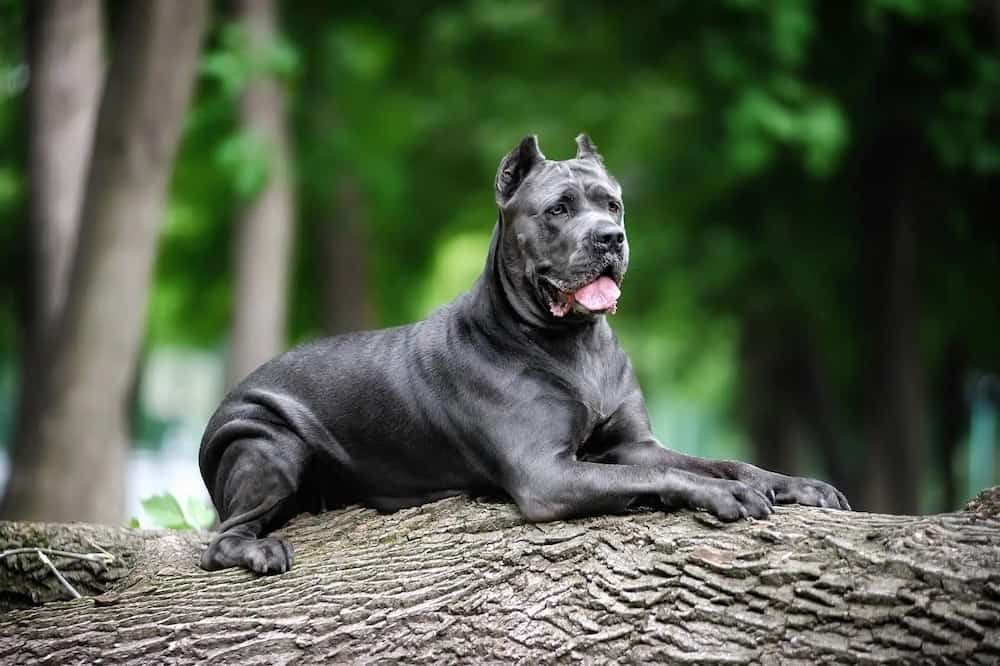
Great Dane
Just like the Cane Corso, Great Danes are easily spooked. Handsome as they are, they require serious coaching when it comes to being domesticated, and usually require supervision around dogs and kids, leading to negligent behavior on the owner’s part. As always, uneutered dogs pose a greater risk.

Doberman Pinscher
Dobermans were bred as guard dogs in Germany back in the day. While breeders have worked to make sure these dogs are calm and stable, there have been cases of Doberman dogs attacking kids, and even if the fault is on the owners for the dog’s bad behavior, insurance companies don’t see it this way.
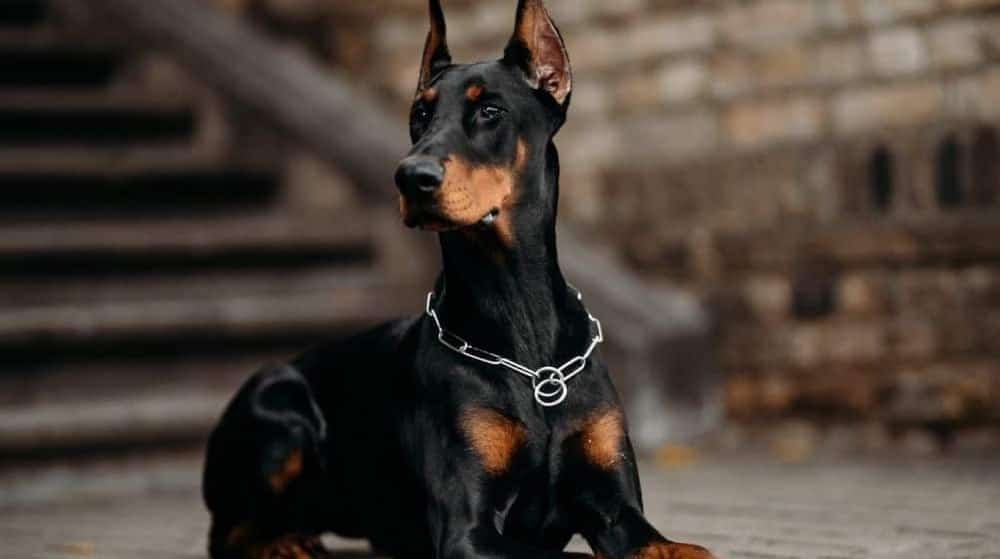
American Staffordshire Terrier
Staffies are generally playful and gentle, but if you neglect them, the AKC, or American Kennel Club, says their actions can become destructive. If your dog escapes or if you have young children unattended, this can create an issue.
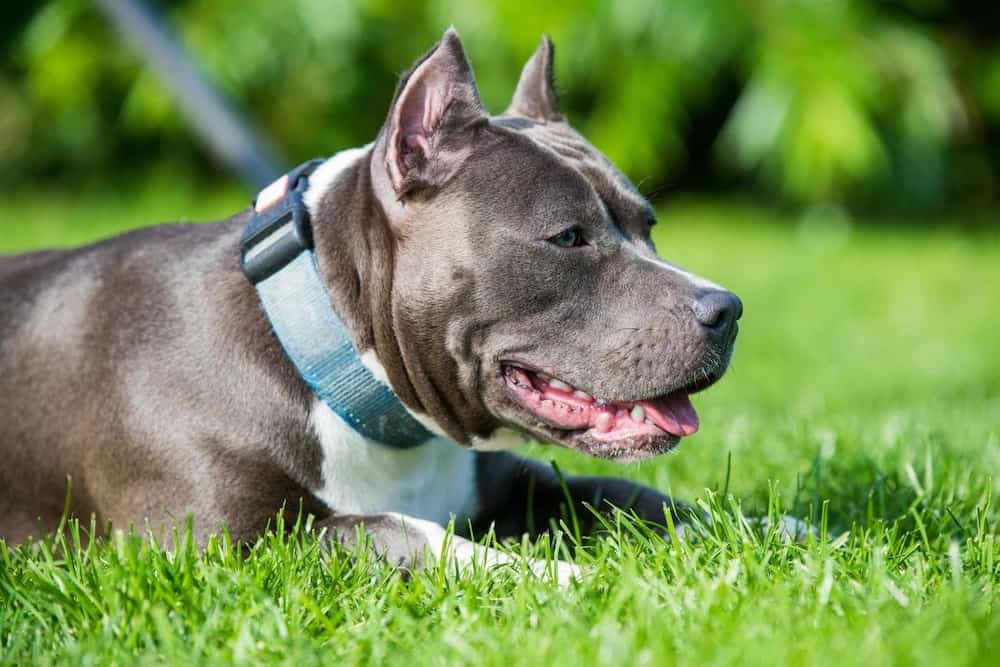
German Shepard
Another frequent police dog, these pups are protective over their families, which can lead to issues. Back in 2018, a pair of German Shepherds escaped from their home and attacked a pedestrian walking by.
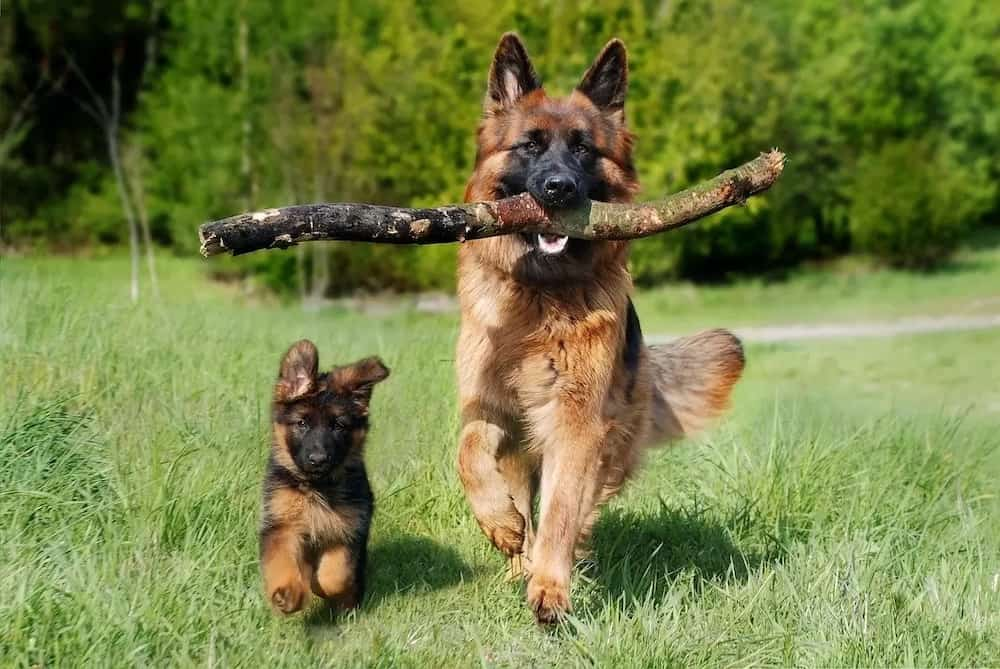
Rottweiler
As adorable as Rotties are, they can get to massive sizes and were in fact bred for strength purposes alone. Although these dogs are loyal to their families, this can backfire and cause them to act with violence to people or fellow dog owners who approach. Commonly used as police modes, sometimes these dogs (when not properly trained) can misconstrue playtime for attack mode.
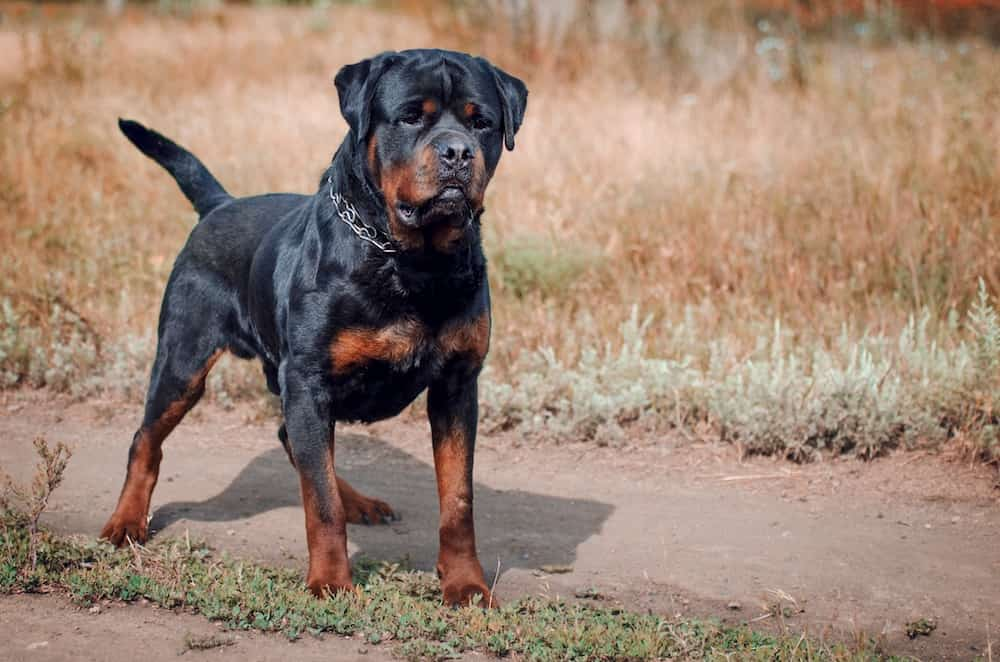
Siberian Husky
Huskies are gorgeous, but they’re also known for having extremely high energy levels that take hours and hours to tire out. They were more bred to pull sleds than guard homes, and due to their explosive nature, lots of people don’t like having them around young children, and this can affect insurance — they even compete with kids for attention.
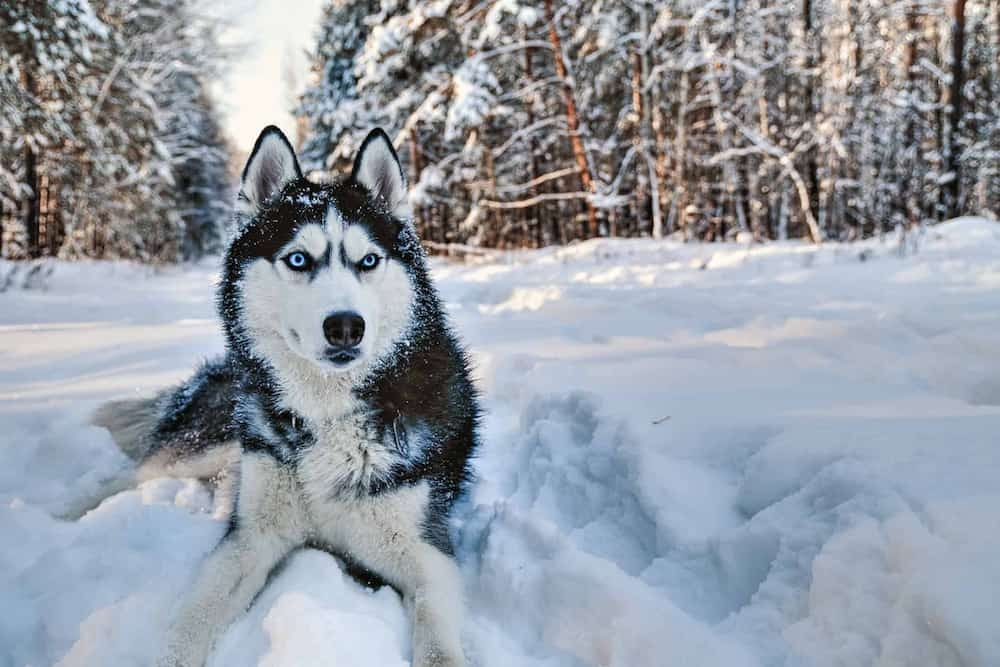
Pekingese
You might want to cuddle this dog based on its tiny nature, but their independent nature can make them hard to control. They often rebel around kids and need a powerful sense of authority to tame their feisty nature.
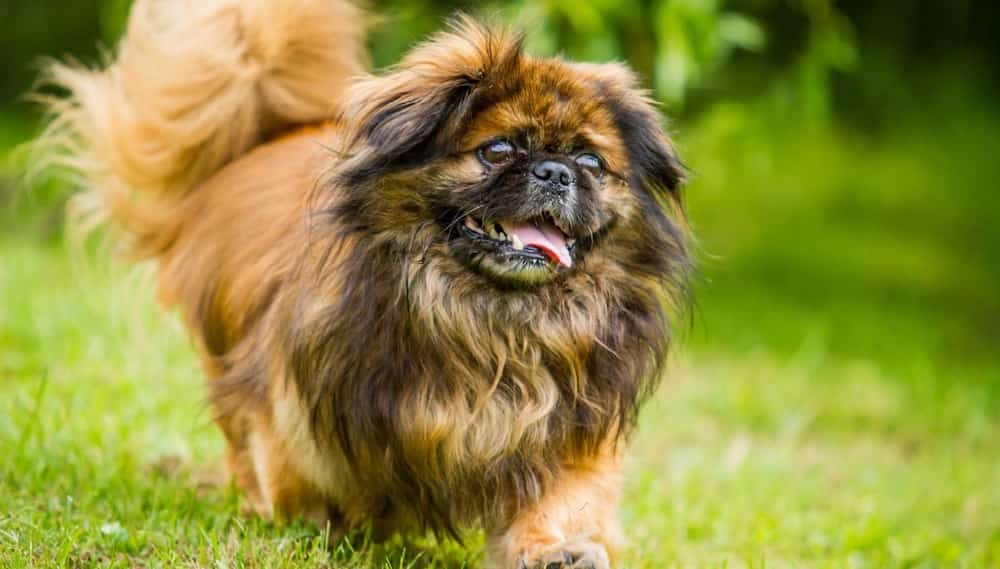
Wolf Hybrid
Wolves are natural hunters — and even if you take the wolf out of nature, you can’t take nature out of the wolf. A Wolf hybrid is made by mating a dog and wolf, and creating this blend can after be dangerous and create unforeseeable actions in the future.
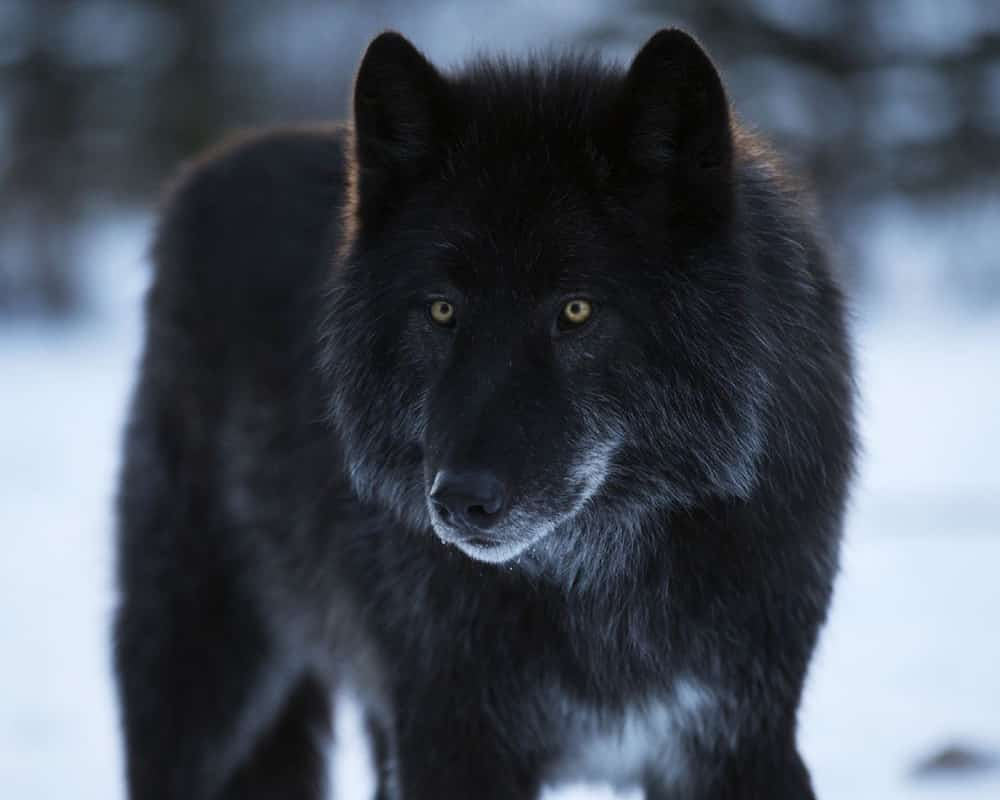
Alaskan Malamute
Like huskies, malamutes are pets who are popular due to their love for people. Still, they have what’s referred to as a “high prey drive”, meaning that if they needs aren’t met, they can get aggressive — especially if they’re not fixed from a young age.
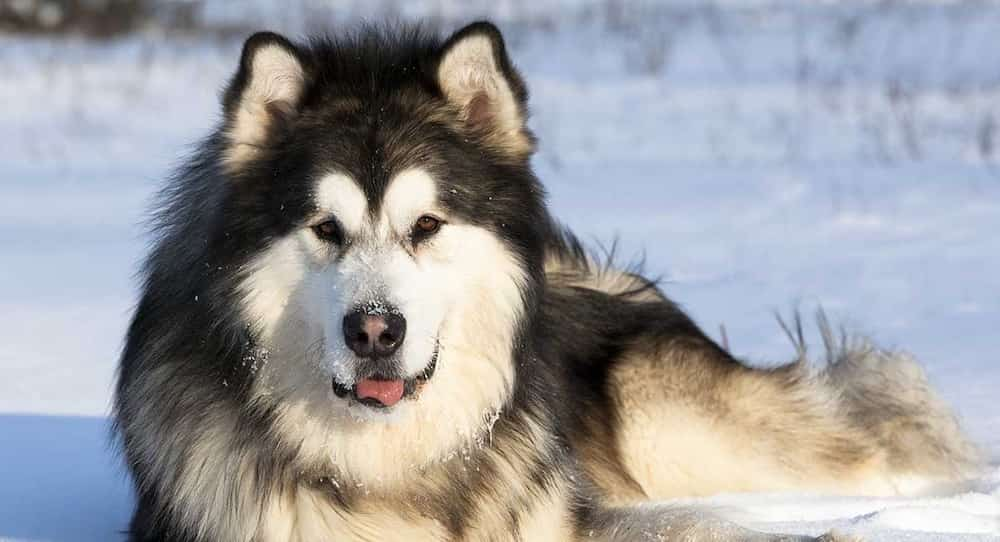
Chihuahua
Even though large dogs are usually on the no-go list, Chihuahuas are actually not the best family dogs due to their stubborn behavior and strong will. They are difficult to train unless there is a very strong sense of leadership. They can actually get quite aggressive with kids due to jealousy.

Affenpinscher
This little fur-ball doesn’t look like much, but they’re rather mischievous. Even though the Affenpinscher can be entertaining, they defend themselves when they don’t feel comfortable, so if a young child is roughhousing or bugging them, they might bite back. Strong leadership is a must, since they’re easily disobedient with weak leaders.
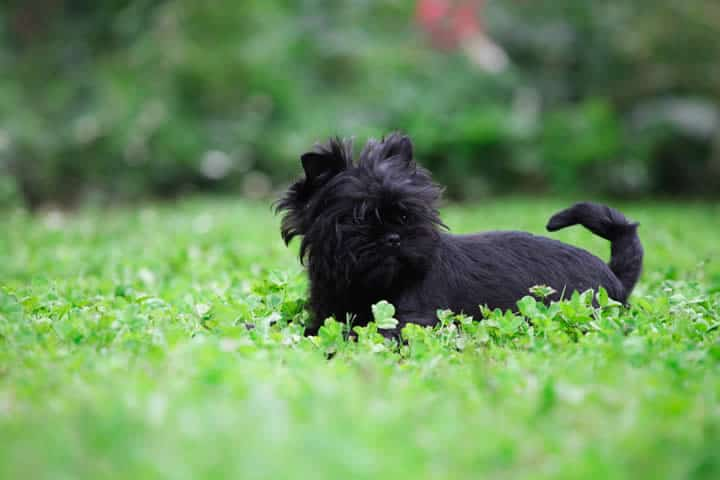
Dogo Argentino
This dog is commonly used to law enforcement and guiding those without site, but its aggressive side when it has not been raised right has led to it being banned in over six countries. Due to the unpredictable nature of the Dogo Argentino, it is considered a big risk by insurance companies.
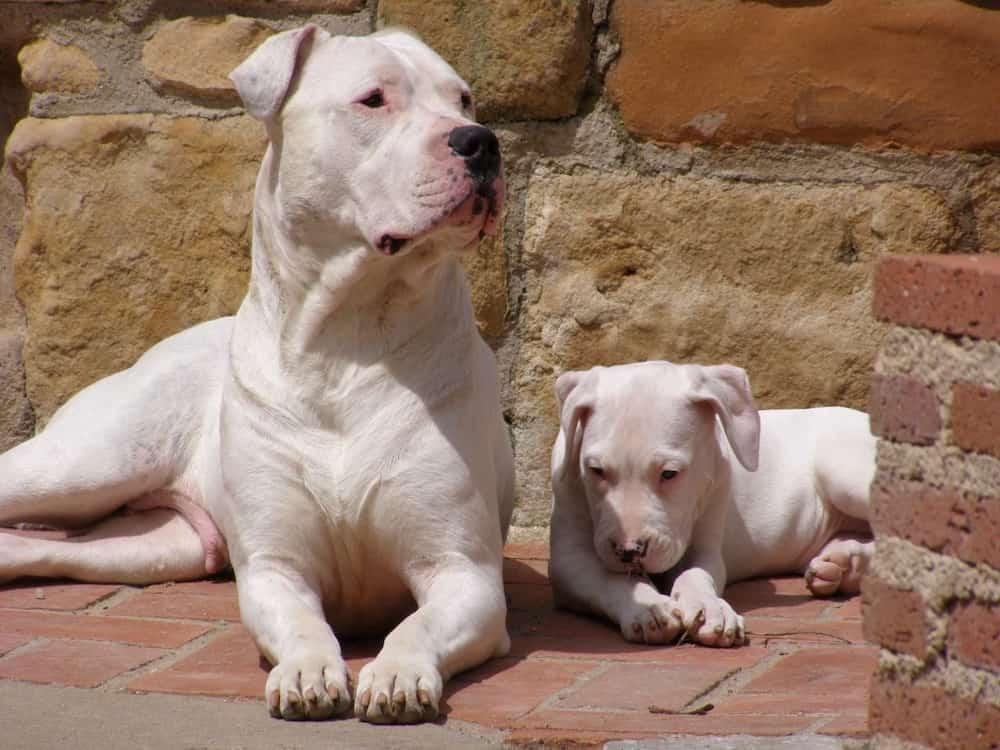
Jack Russell Terrier
Jack Russells are little adventurers, but that energy can be hard to handle. If you don’t tired them out a Jack Russell might tear up your house. They also don’t enjoy rough play, so if a kid pokes them, they may bite back to get the space they need. These dogs need plenty of time and attention.
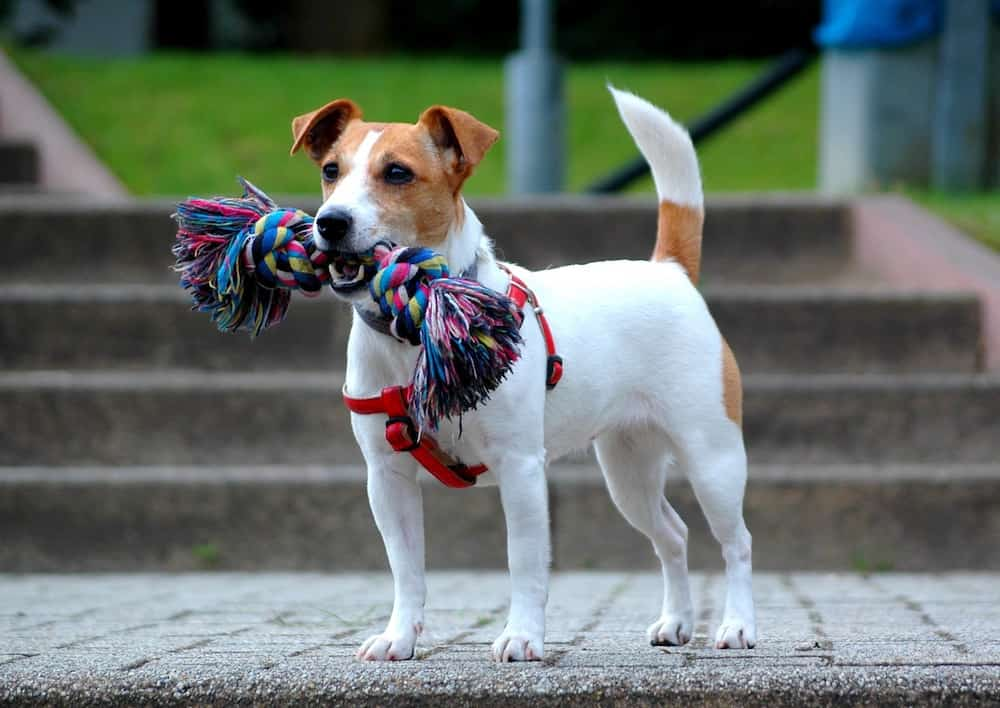
Shih Tzu
People don’t recommend the families adopt a Shih Tzu, since this breed has a sensitive defense mechanism, making them easily scared or overexcited, which can lead to unwarranted bites. They also need someone around at most times, otherwise can develop severe separation anxiety which worsens this behavior.
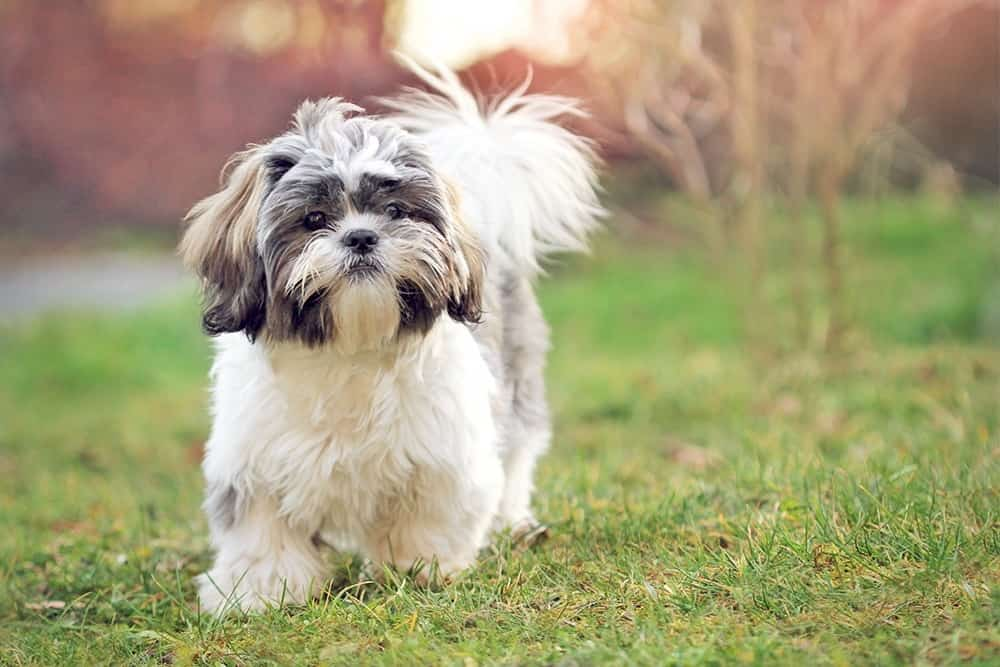
Weimaraner
This breed was once a hunting dog, and they have lots of energy, meaning it takes a while to tire them out. When they’re not tired out, they might knock over kids, get bored, and get very needy when it comes to exercise and physical activities. They might even tear up the house if you don’t mind their needs.
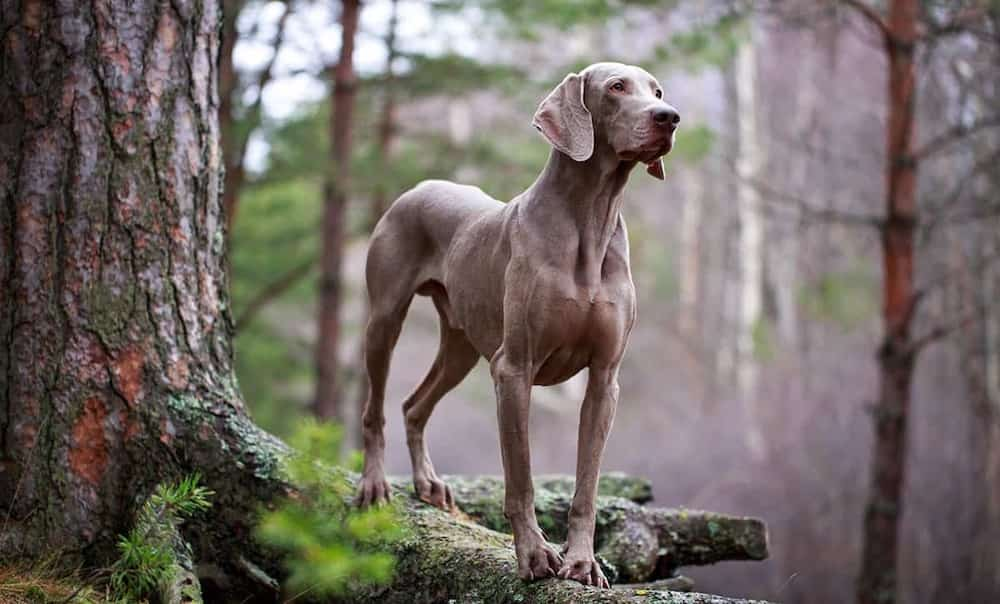
Japanese Tosa
The Japanese Tosa is a rare dog, and if you haven’t heard of them, that’s probably why. The Tosa has historically been bred as a fighting dog, but surprisingly, they’re more fearless and aggressive towards people than they are to dogs.
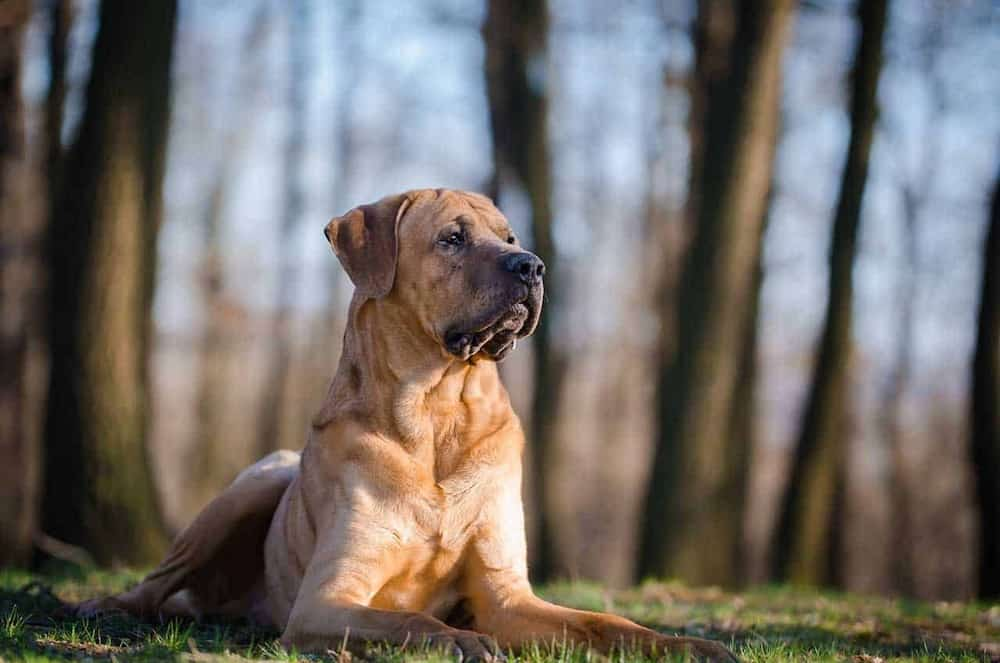
Rhodesian Ridgeback
The Rhodesian Ridgeback is a majestic dog. It used to track lions in South Africa, and unfortunately has a bad rep for attacking kids when let loose. If there’s any chance that your Ridgeback can break free of its leash or hop over a fence (which is likely given their size and strength), chaos can ensue.

Dalmatians
You might not see too many of these spotted Disney dogs around town, and that’s because their behavior can be tough to control. This dog has frenetic, high levels of energy that it needs to release frequency. If not given that attention, expect a problem with behavior.
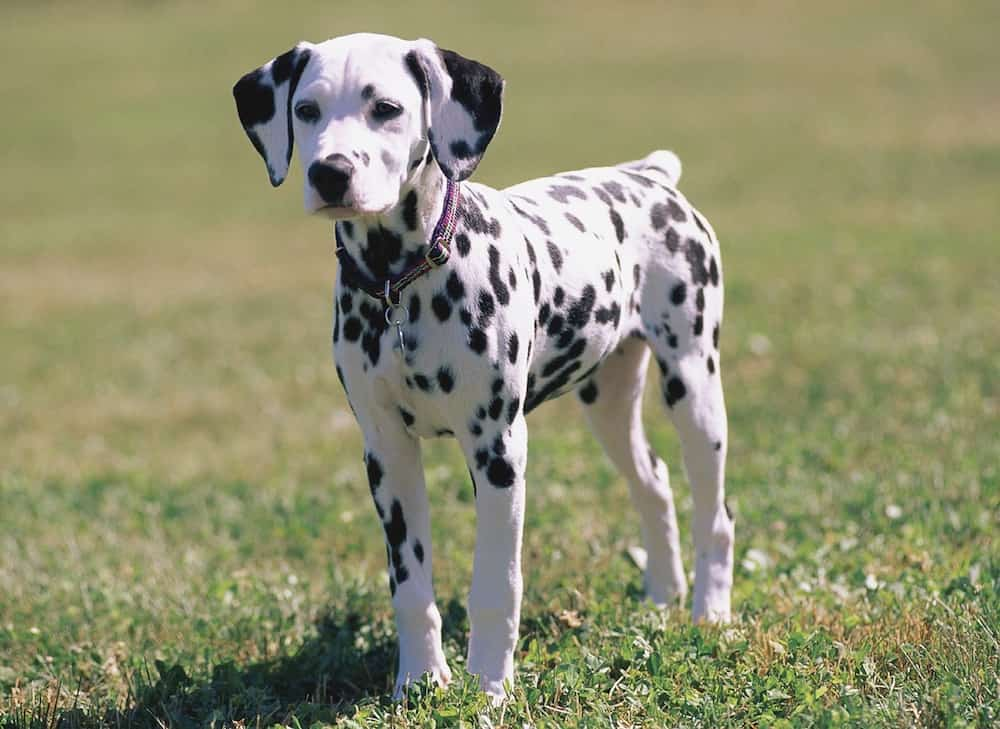
Bullmastiff
These dogs are big, but think they’re a small terrier, which can lead to some potential issues such as knocking own kids or being aggressive towards other dogs. If they are rescued or adopted as adult dogs, training is very difficult — the earlier, the better.

Chow Chow
These guys might look like fluffy stuffed animals, but they’ve been known to accidentally hurt kids, and require owners with a sense of power, which can be hard for young children to convey. They can also get very attached to their parents and protective over their family, causing danger to strangers who approach.

